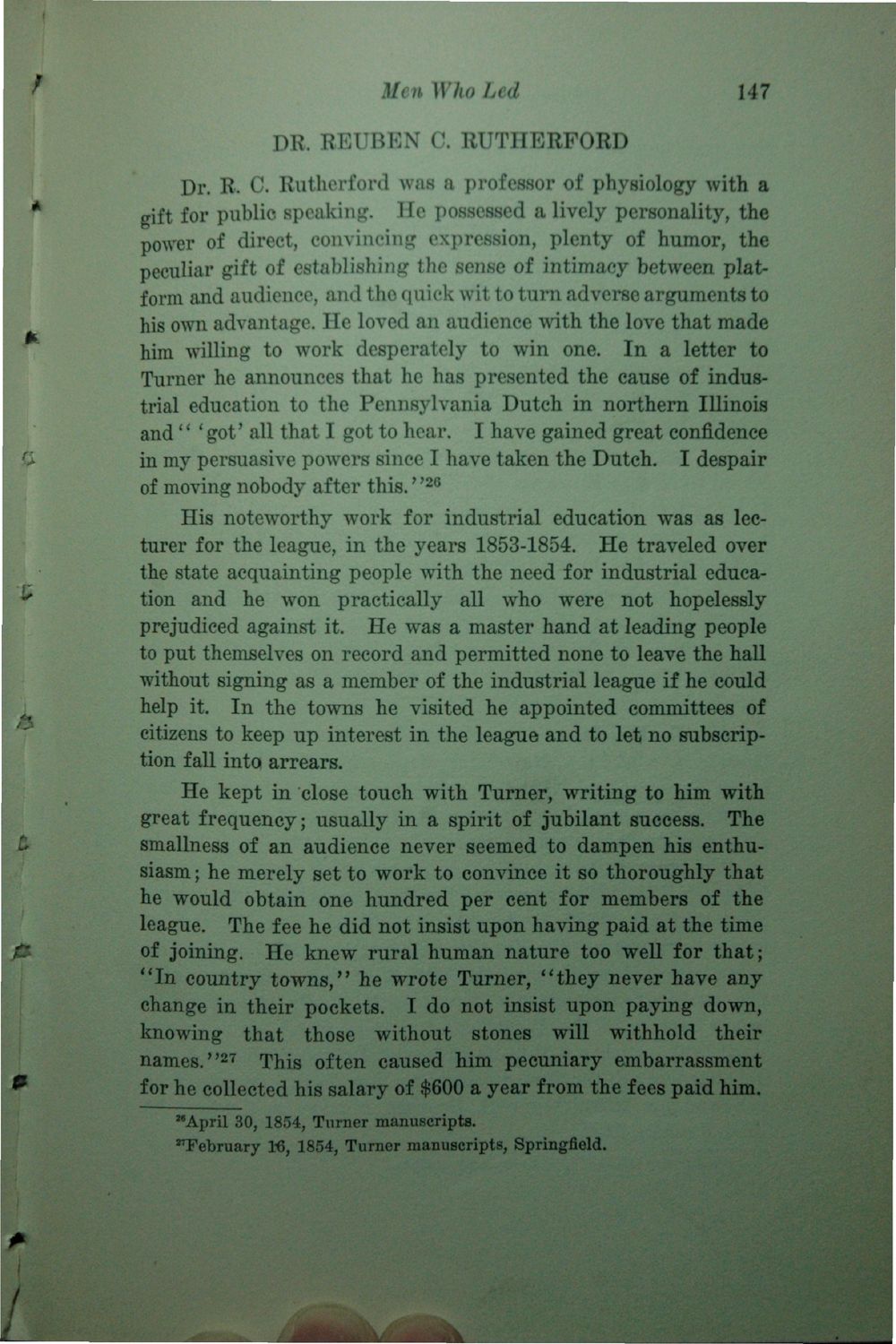| |
| |
Caption: Book - History of the University (Powell)
This is a reduced-resolution page image for fast online browsing.

EXTRACTED TEXT FROM PAGE:
Men Who Led DR. REUBEN C. RUTHERFORD 147 Dr. R. C. Rutherford was a professor of physiology with a gift for public speaking. He possessed a lively personality, the power of direct, convincing expression, plenty of humor, the peculiar gift of establishing the sense of intimacy between platform and audience, and the quick wit to turn adverse arguments to his own advantage. He loved an audience with the love that made him willing to work desperately to win one. In a letter to Turner he announces that he has presented the cause of industrial education to the Pennsylvania Dutch in northern Illinois and" 'got* all that I got to hear. I have gained great confidence in my persuasive powers since I have taken the Dutch, I despair of moving nobody after this. * *26 His noteworthy work for industrial education was as lecturer for the league, in the years 1853-1854. He traveled over the state acquainting people with the need for industrial education and he won practically all who were not hopelessly prejudiced against it. He was a master hand at leading people to put themselves on record and permitted none to leave the hall without signing as a member of the industrial league if he could help it. In the towns he visited he appointed committees of citizens to keep up interest in the league and to let no subscription fall into arrears. He kept in close touch with Turner, writing to him with great frequency; usually in a spirit of jubilant success. The smallness of an audience never seemed to dampen his enthusiasm; he merely set to work to convince it so thoroughly that he would obtain one hundred per cent for members of the league. The fee he did not insist upon having paid at the time of joining. He knew rural human nature too well for that; "In country towns," he wrote Turner, "they never have any change in their pockets. I do not insist upon paying down, knowing that those without stones will withhold their names;" 27 This often caused him pecuniary embarrassment for he collected his salary of $600 a year from the fees paid him. M AprxL 30, 1854, Turner manuscripts. February 16, 1854, Turner manuscripts, Springfield.
| |